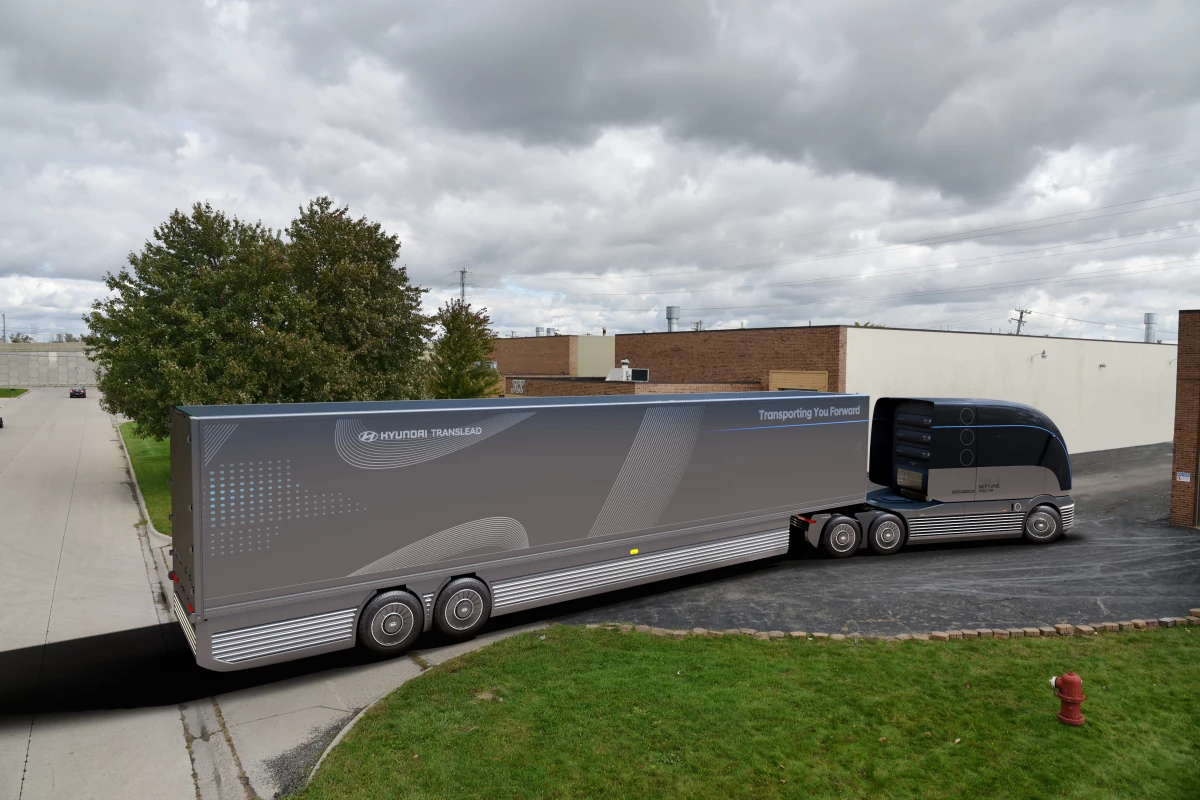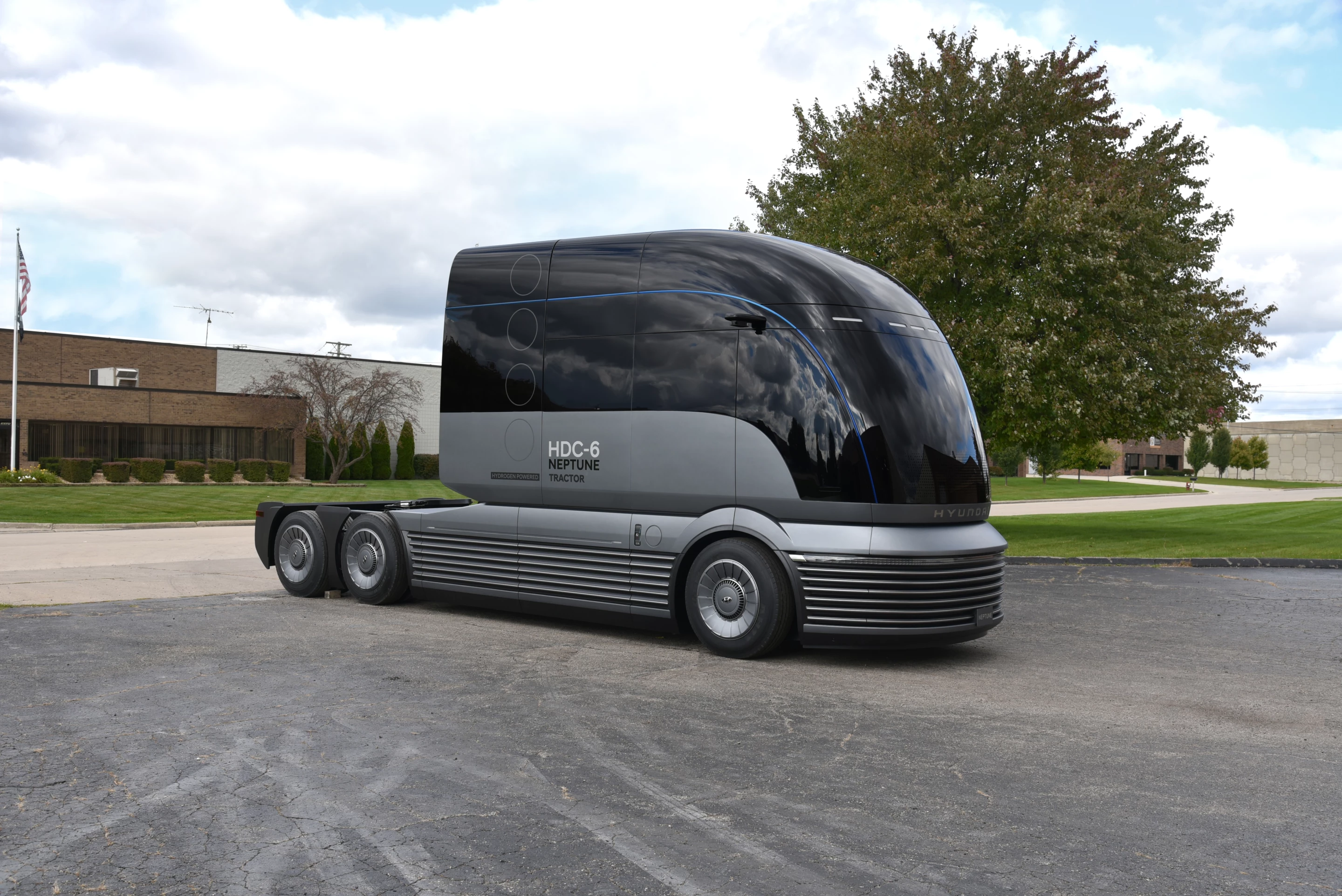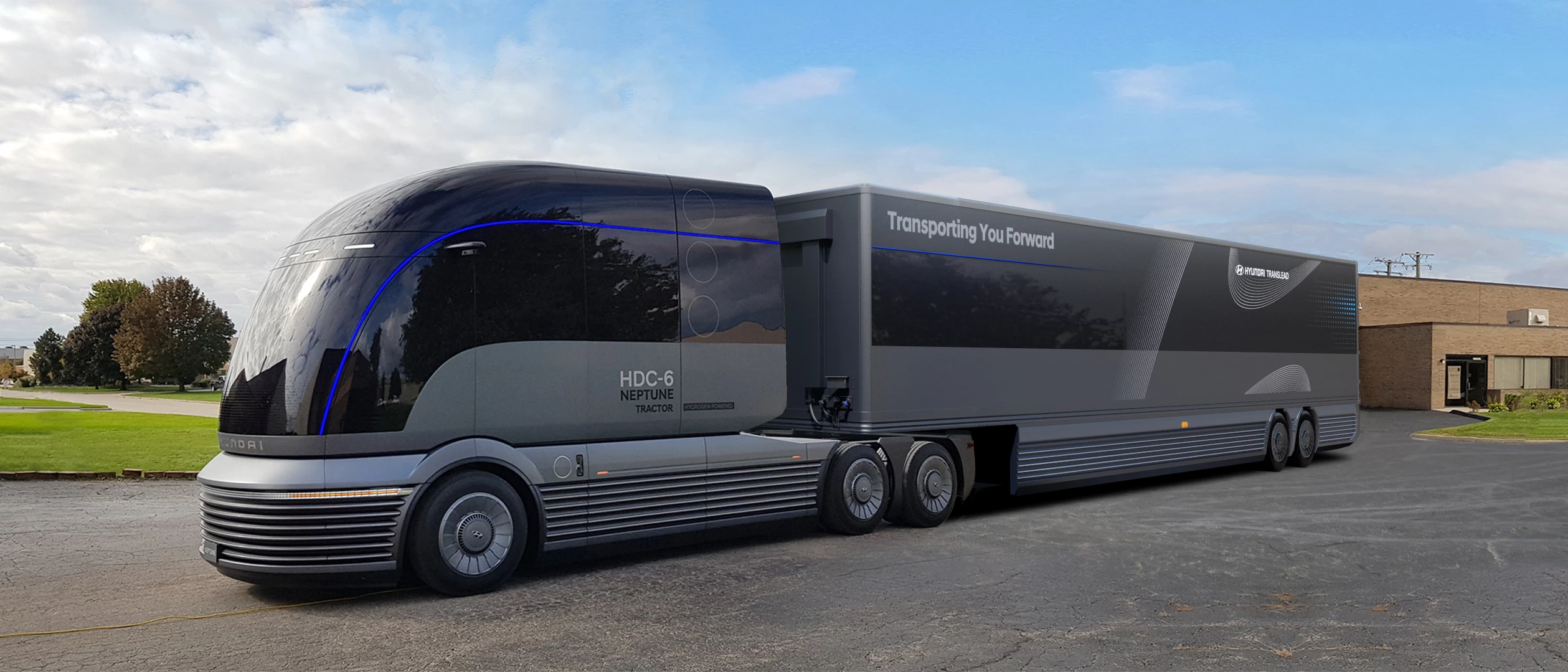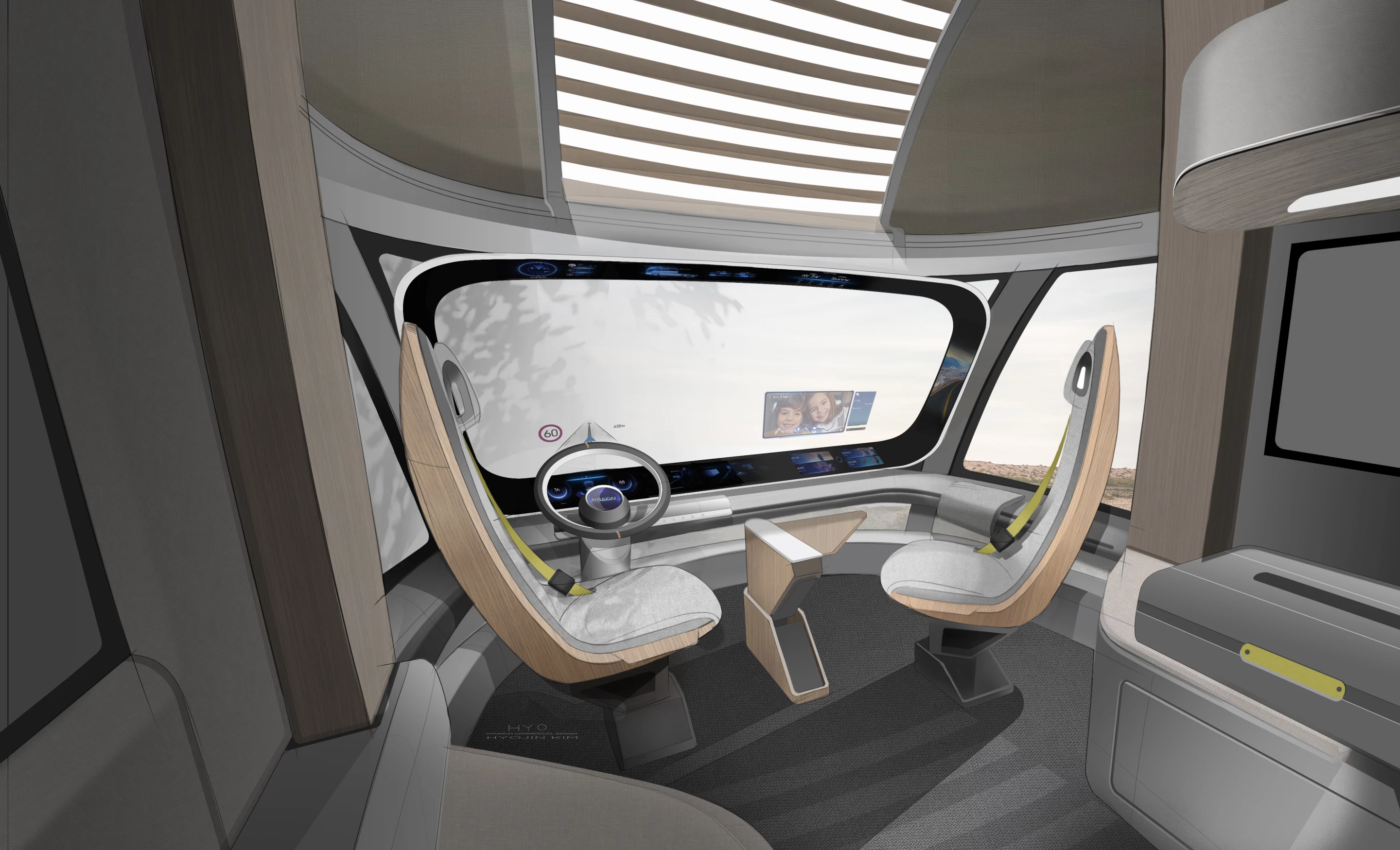Hyundai, eager to explore commercial trucking opportunities in the US, has debuted a hydrogen-powered Class 8 heavy truck, the HDC-6 Neptune Concept, and a green-energy refrigerated trailer, the HT Nitro ThermoTech Concept. Both are being shown at the North American Commercial Vehicle (NACV) show.
With the concepts, especially the HDC-6 Neptune truck, Hyundai is looking at potential changes to the commercial market for short- and long-haul needs. The truck is optimized to deliver both aerodynamics and driver-friendliness, with an eye towards future automation in the sector.
Hyundai says that the HDC-6 Neptune truck was inspired by the streamliner railway trains that ran in the 1940s and 50s. These Art Deco trains eventually led to the bullet trains of today and, Hyundai thinks, will lead to the tractor-trailer trucks of tomorrow. The HDC-6 Neptune Concept uses a fuel cell powertrain derived from Hyundai’s fuel cell crossovers already on the road. Because the truck uses fuel cells instead of a traditional diesel engine, reshaping the cab was relatively easy.
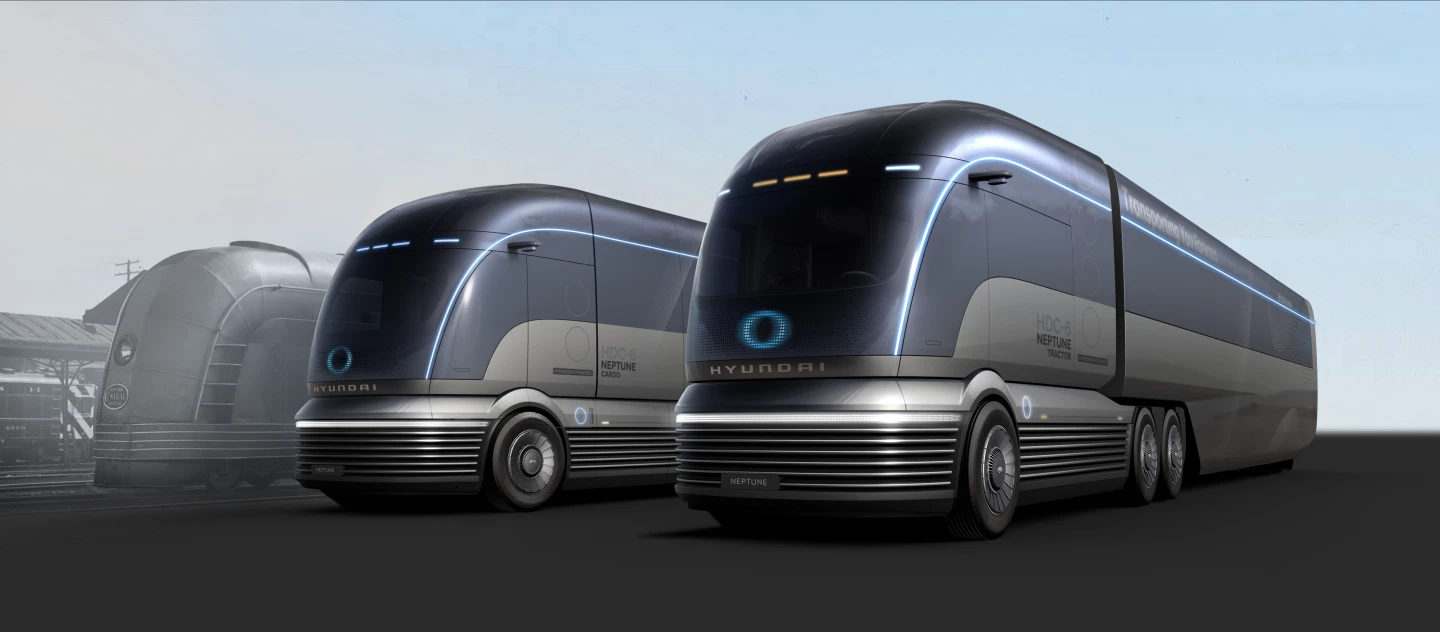
The large grille of the round-nosed Neptune Concept allows plenty of airflow into the fuel cell stacks and batteries. Integrated in the grille are retractable steps for the driver to get into and out of the truck. The package efficiency of the Neptune aims towards combining the high points of both Euro-style cab-over rigs and more conventional (engine-ahead, hooded) trucks.
While the concept showcases Hyundai’s potential plans for the future, the company is already on the road with fuel cell-driven trucks in Switzerland, in partnership with H2 Energy. The Swiss venture is fielding 1,600 FCEV (fuel cell electric vehicle) heavy-duty trucks through 2023. Hyundai sees North America as the next phase of its HCEV globe.
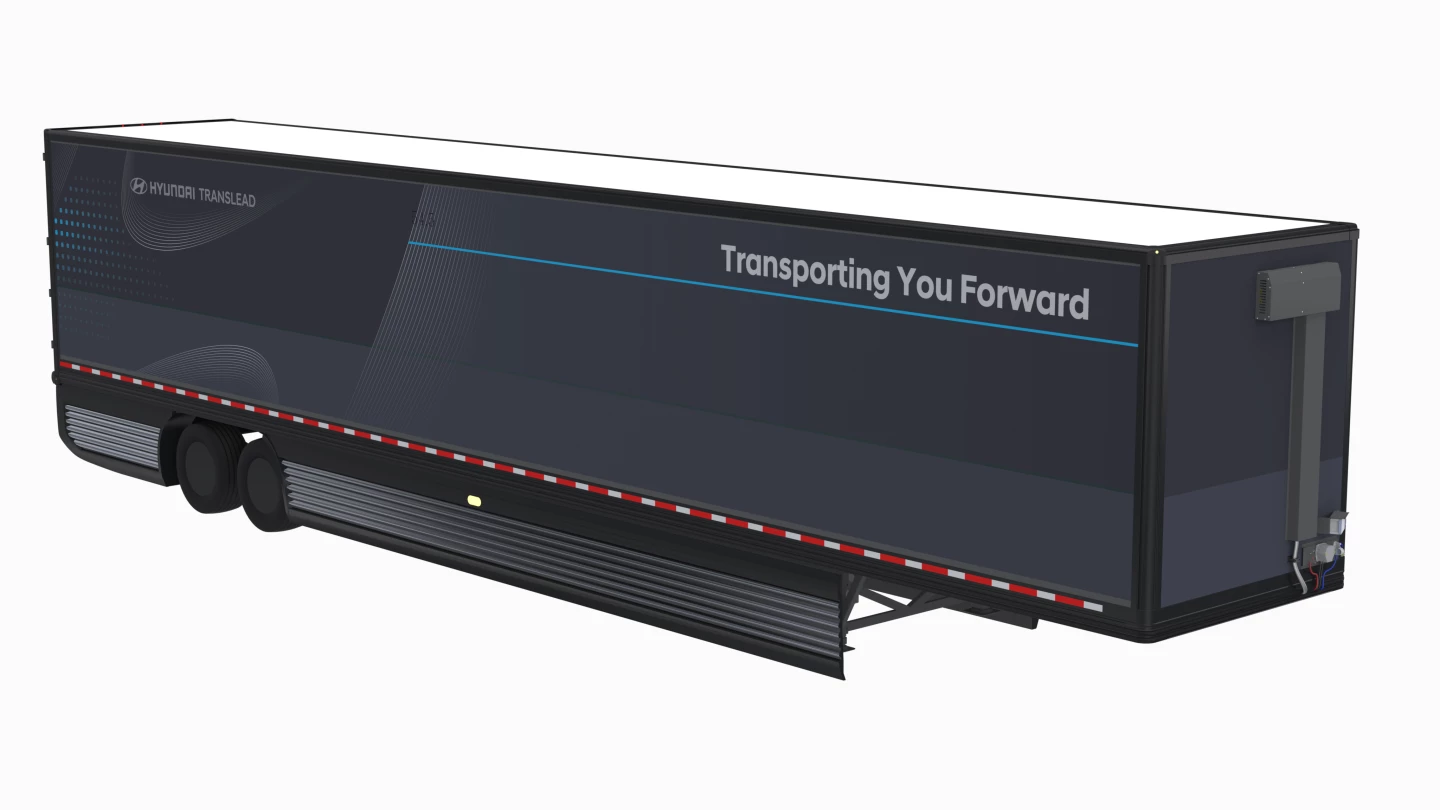
Hyundai’s subsidiary, Translead, is showing a new, near-market concept in its HT Nitro TheroTech trailer. This refrigerated trailer allows precise control of in-trailer temperatures via a unique design and its cryogenic nitrogen system.
The trailer runs quieter than even electric units, offering fully mobile refrigerated trailering without need of plugs or fuel pumps. Temperatures are maintained at any given temperature by circulating liquid nitrogen. Unique to the trailer is a one-piece side-wall and single-piece top construction made with a fiber-reinforced polymer (FRP) skin.
This allows the walls and roof to be constructed without posts or roof bows, giving the foam panel design a lighter weight than conventional refrigerated trailer, and better thermal efficiency as well. Trailer volume is unaffected and the bonding between the panels and trailer rails reduce thermal bridges and seal for water and weather.
There's no word on when – if ever – we might start seeing the truck or the trailer on the road.
Source: Hyundai
